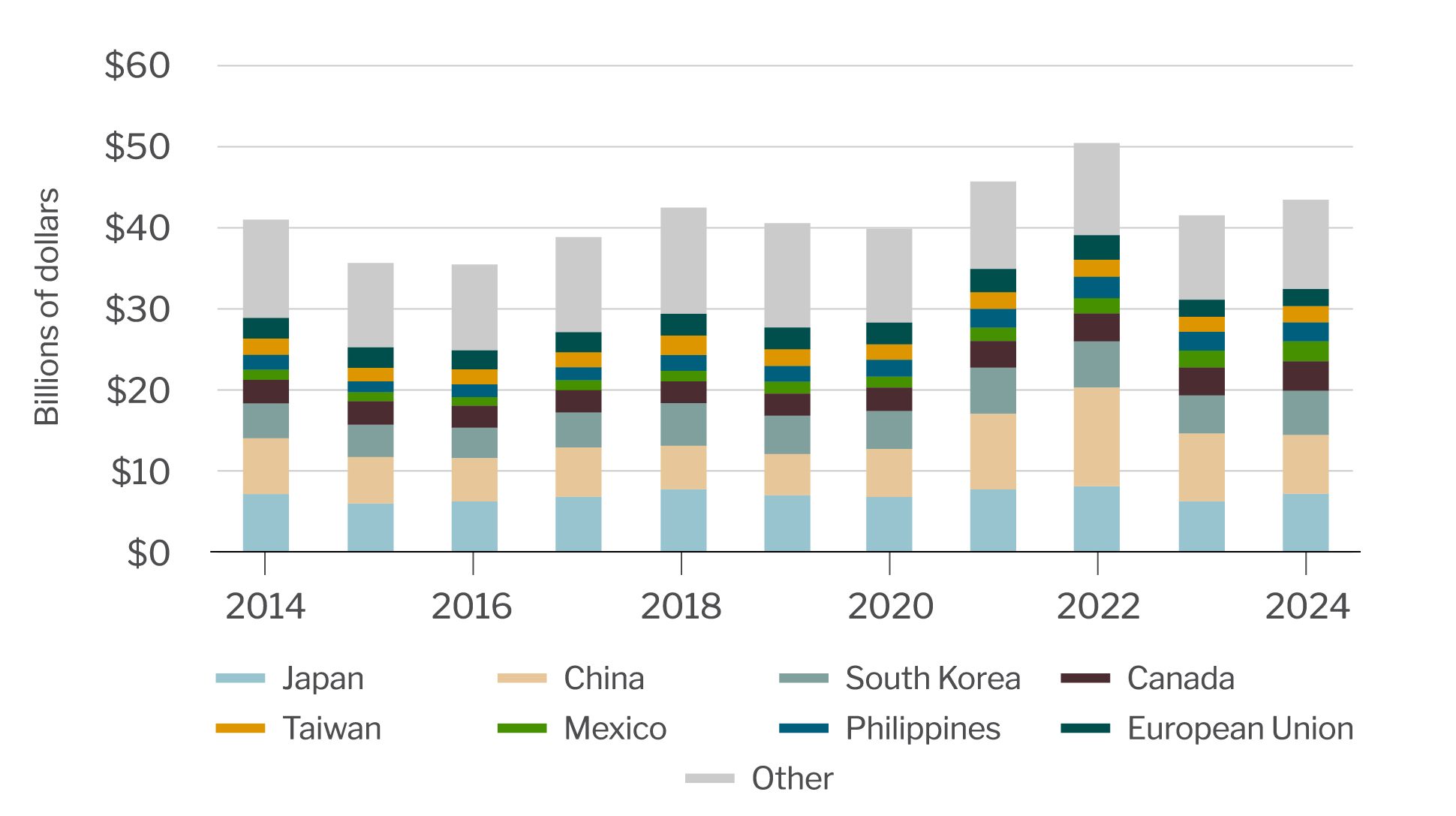Need Help
If you need help setting up services or accessing your accounts, please call our Customer Care Team at 866.552.9172 during business hours (7 a.m. — 5 p.m. PST, M-F) or email us at CustomerCare@AgWestFC.com.
Location
If you need help setting up services or accessing your accounts, please call our Customer Care Team at 866.552.9172 during business hours (7 a.m. — 5 p.m. PST, M-F) or email us at CustomerCare@AgWestFC.com.
Location
If you need help setting up services or accessing your accounts, please call our Customer Care Team at 866.552.9172 during business hours (7 a.m. — 5 p.m. PST, M-F) or email us at CustomerCare@AgWestFC.com.
Securely update and exchange balance sheet information with your AgWest team.
Put your idle cash to work with a suite of banking services that sweeps funds between accounts. Fees apply.
Businesses and consumers are wondering to what degree the Trump administration will apply tariffs on trade partners and how that could impact the cost of goods and general health of the economy. U.S. agriculture producers with a strong emphasis on exports wonder if retaliatory tariffs could impact their bottom line.
Tariffs, or taxes paid on imports, have always been a policy tool of the United States and represented the primary source of income for the federal government until the early 1900s when the income tax was established. Some argue tariffs are good as they protect domestic producers, while others counter that they raise the cost of living and lead to retaliatory tariffs against U.S. exports. Both arguments have merit.
The Trump administration is likely to apply tariffs against countries considered to be manufacturing competitors, countries perceived to be unfairly benefiting from U.S. military / economic policy, and/or countries responsible for the inflow of illegal immigration and drugs. This may include any one of the primary export markets for Western agriculture producers (see chart below), but China is likely top on the list, followed by the European Union. Canada and Mexico may also be targeted; however, North American trade policy is set by the United States-Mexico-Canada Agreement (USMCA), which won’t be up for renewal until 2026.
Nearly $60 billion in agriculture goods was exported out of West Coast ports in 2023. As such, retaliatory tariffs could have far reaching impacts. For instance, in response to tariffs placed on steel and aluminum, India applied retaliatory tariffs against almonds, apples, chickpeas, lentils and walnuts between 2019 and 2023. Based on Census Bureau trade data, this likely resulted in an estimated $600 million loss to West Coast agriculture producers.
Season-to-date agriculture exports out of West Coast ports, by value and country 
Source: USDA Foreign Agriculture Service GATS Trade Database.
The degree to which the Trump administration applies tariffs is uncertain due to a number of factors:
Return to Industry Insights home page
IN THIS SECTION
![]()

Economic growth has exceeded most expectations over the past several quarters as consumers maintain spending levels.
Learn more